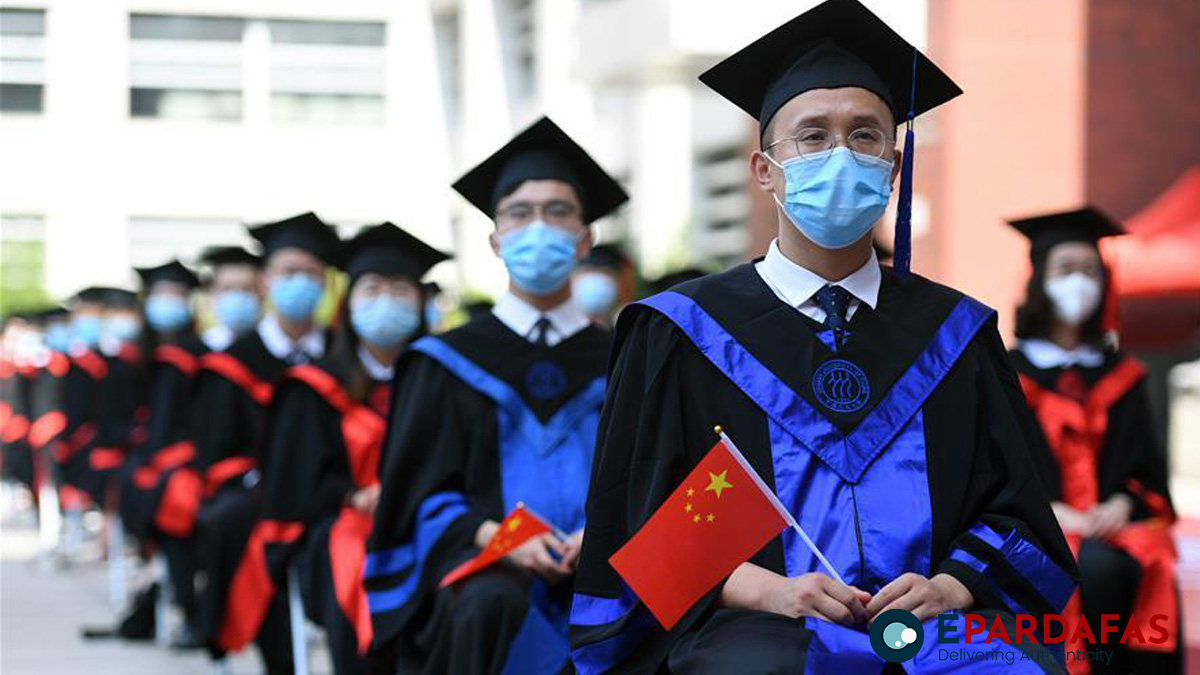
Rise of ‘Rotten-Tail Kids’: Unemployment Crisis Forces China’s Graduates into Tough Choices

As unemployment rates continue to rise in China, millions of college graduates are facing difficult decisions, with many being forced to accept low-paying jobs or rely on their parents’ pensions. This growing issue has led to the emergence of a new working class, colloquially dubbed “rotten-tail kids,” a term that has gained popularity on social media this year.
The phrase draws a parallel to “rotten-tail buildings,” referring to the millions of unfinished homes that have plagued China’s economy since 2021. Now, it symbolizes the plight of young graduates struggling to find their footing in a labor market severely impacted by the COVID-19 pandemic, as well as regulatory crackdowns on key sectors such as finance, technology, and education.
The unemployment rate for Chinese youth, aged 16-24, first exceeded 20% in April last year. It reached an all-time high of 21.3% in June 2023, prompting officials to abruptly suspend the release of youth unemployment data. Despite the pause, the issue remains a significant concern, with the reconfigured jobless rate spiking to 17.1% in July 2024, as 11.79 million college students graduated this summer into an economy still weighed down by the ongoing real estate crisis.
President Xi Jinping has emphasized the importance of finding jobs for young people, calling it a top priority. The government has introduced measures such as job fairs and supportive business policies to help boost hiring and provide more opportunities for the youth to connect with potential employers.
However, the reality for many graduates is far from promising. Yun Zhou, an assistant professor of sociology at the University of Michigan, noted, “For many Chinese college graduates, better job prospects, upward social mobility, and a sunnier life outlook, all things once promised by a college degree, have increasingly become elusive.”
Some jobless young people have returned to their hometowns, becoming “full-time children” dependent on their parents’ retirement pensions and savings. Even those with advanced degrees are not immune to the challenges. After years of climbing China’s ultra-competitive academic ladder, “rotten-tail kids” are finding that their qualifications do not guarantee them jobs in a bleak economy.
Zephyr Cao, a 27-year-old with a master’s degree from the prestigious China Foreign Affairs University in Beijing, has stopped seeking full-time work after lower-than-expected wages made him question the value of his education. “If I worked for three or four years after my undergraduate studies, my salary would probably be similar to what I get now with a master’s degree,” Cao said. He is now considering pursuing a Ph.D. in the hopes that his prospects will improve in the coming years.
Amada Chen, a recent graduate from Hubei University of Chinese Medicine, quit her sales job at a state-owned enterprise last week after just one month. She cited a toxic work culture and unrealistic expectations as reasons for leaving. During the first 15 days of her probation, she was paid only 60 yuan ($8.40) a day, despite working 12-hour days. “I cried every day for a week,” Chen said.
Chen had hoped to become a quality inspector or researcher, jobs she believed would align with her skills as a traditional Chinese medicine major. However, after submitting over 130 job applications, she was offered mostly sales or e-commerce-related positions. Now, she is reconsidering her career path and may turn to modeling.
The challenges facing recent graduates are not new. In 1999, China dramatically expanded university enrollment in an effort to create a better-educated workforce to drive its rapidly growing economy. However, the supply of graduates has consistently exceeded the demand for jobs, a concern that has persisted despite temporary improvements in the job market.
The outlook remains uncertain even for those whose majors align with market needs. Shou Chen, a third-year student majoring in artificial intelligence at Beijing University of Posts and Telecommunications, has yet to secure an internship despite more than a dozen applications. She remains pessimistic about her future prospects. “It may be worse,” she said. “After all, there will be more and more people (in this field).”
A study published in June by China Higher Education Research, a journal under the education ministry, predicts that the supply of tertiary students will continue to exceed demand from 2024 through 2037. After that, falling fertility rates are expected to narrow the gap sharply. The number of new college graduates is expected to peak at around 18 million in 2034, further intensifying the competition for jobs in an already challenging labor market.
- NEA Faces Financial Crisis as Bank Accounts Frozen Over Arbitration Dispute
- UN Working Group Condemns Bhutan for Arbitrary Detention and Human Rights Violations
- Foreign Minister Rana Holds Talks with Indian Counterpart S. Jaishankar
- Madhesh Province Declines Participation in SEE Over Unaddressed Concerns












Comments